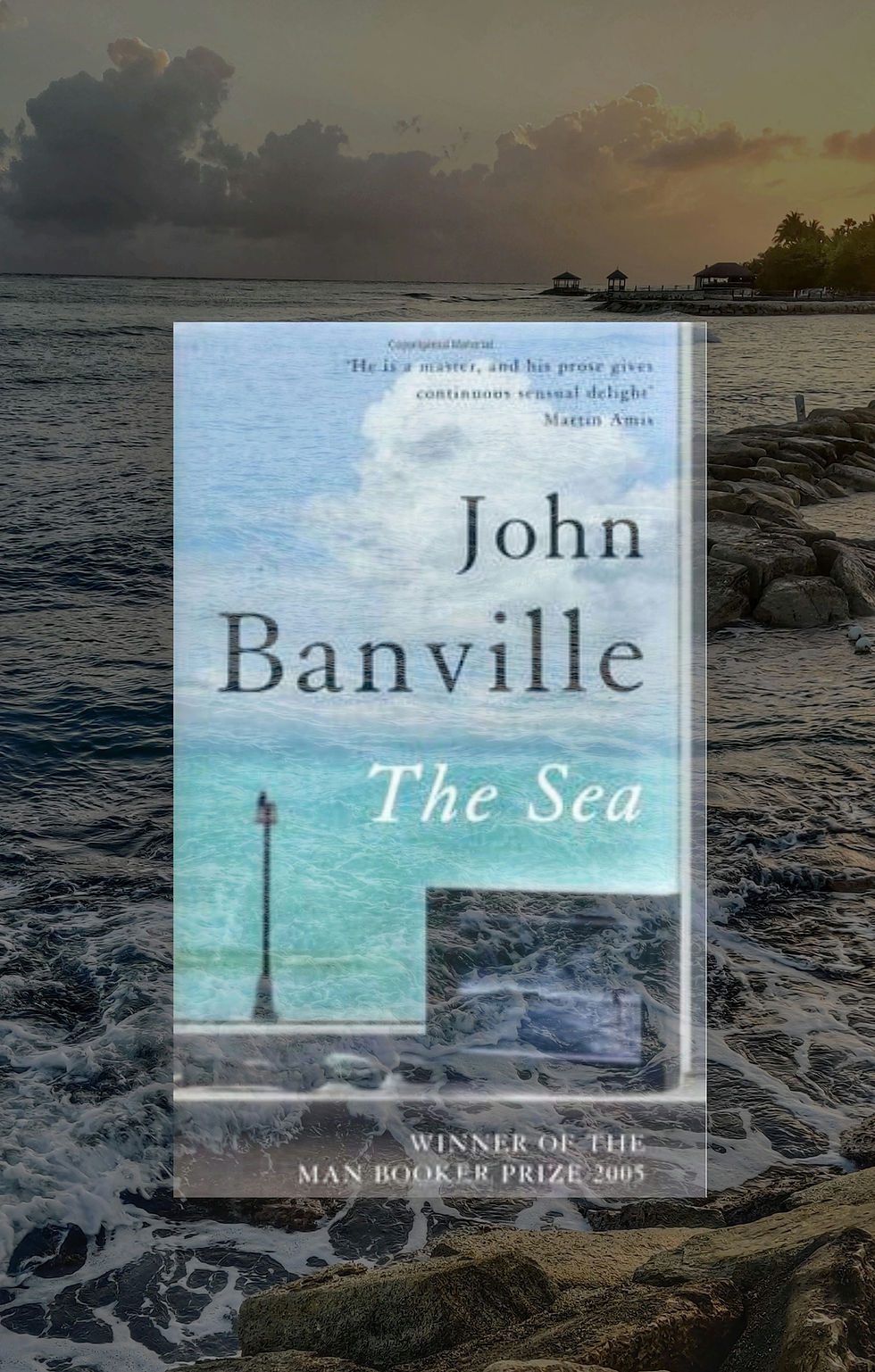
"The past beats inside me like a second heart."
From the very first page, it's evident that Banville's writing is in a league of its own. His prose is akin to poetry, rich with metaphors, lyrical descriptions, and a meticulous attention to detail.
Banville's ability to capture the nuances of human emotion and introspection is truly remarkable, as he looks deep into the mind of the protagonist, Max Morden, a middle-aged man who returns to the coastal village where he spent a pivotal summer of his childhood. He returns to this village after grappling with the recent loss of his wife, where he explores his grief, regrets, and memories.
This novel is a literary work that gracefully explores the intricacies of human emotions, memory, and the profound impact of loss. The novel explores themes of memory, grief, nostalgia, and the enigmatic power of the sea.
While Banville's prose is undoubtedly the novel's shining star, there is an absence of a strong plot. Normally I don't mind having little to no plot, especially when the writing is as beautiful as Banville's, but the narrative meanders through Max's memories and observations without a clear sense of direction. This made my reading experience a struggle between admiring Banville's craft and the frustration of a narrative that often felt directionless, but perhaps this was Banville's intention. I could see how he used the sea and the introspective narrative to show the turbulent currents of Max Morden's mind.
Banville's use of the sea also stands as a symbol that represents both the unyielding passage of time, and the depths of the human subconscious. Just as the sea's waves erode the coastline, time erodes memories and reshapes perceptions. The novel blurs the lines between the past and present, and while it can be frustrating to read at times, I appreciated that it portrayed how memories can both haunt and heal.
Overall I found that Banville crafted a novel that is both poetic and emotionally resonant. His prose brings to life a world of vivid imagery and introspection, making it a must-read for lovers of literary fiction. I will be reading more of his work.
I read this as part of my Reading All the Booker Prize Winners reading challenge. I must admit to having mixed feelings about its Booker Prize win. On the one hand, the writing is undeniably beautiful and exquisite, and I thoroughly appreciated the exploration of its various themes, which unquestionably make it a strong contender for the award. However, on the other hand, I was somewhat surprised when considering the other books in contention for that year's prize. Admittedly, I haven't had the opportunity to read all the books on the longlist, which means I cannot form a wholly objective perspective or gain a comprehensive understanding of why Banville's work prevailed over the rest. Yet, a book such as Kazuo Ishiguro's "Never Let Me Go," which I did read and personally found compelling, might have ranked higher in my view than "The Sea." While Banville's writing is undoubtedly more literary, his handling of certain narrative events and the absence of a well-defined plot left me somewhat disappointed. To gain a more informed opinion, I plan to explore more of the books from that year's longlist.
Comments